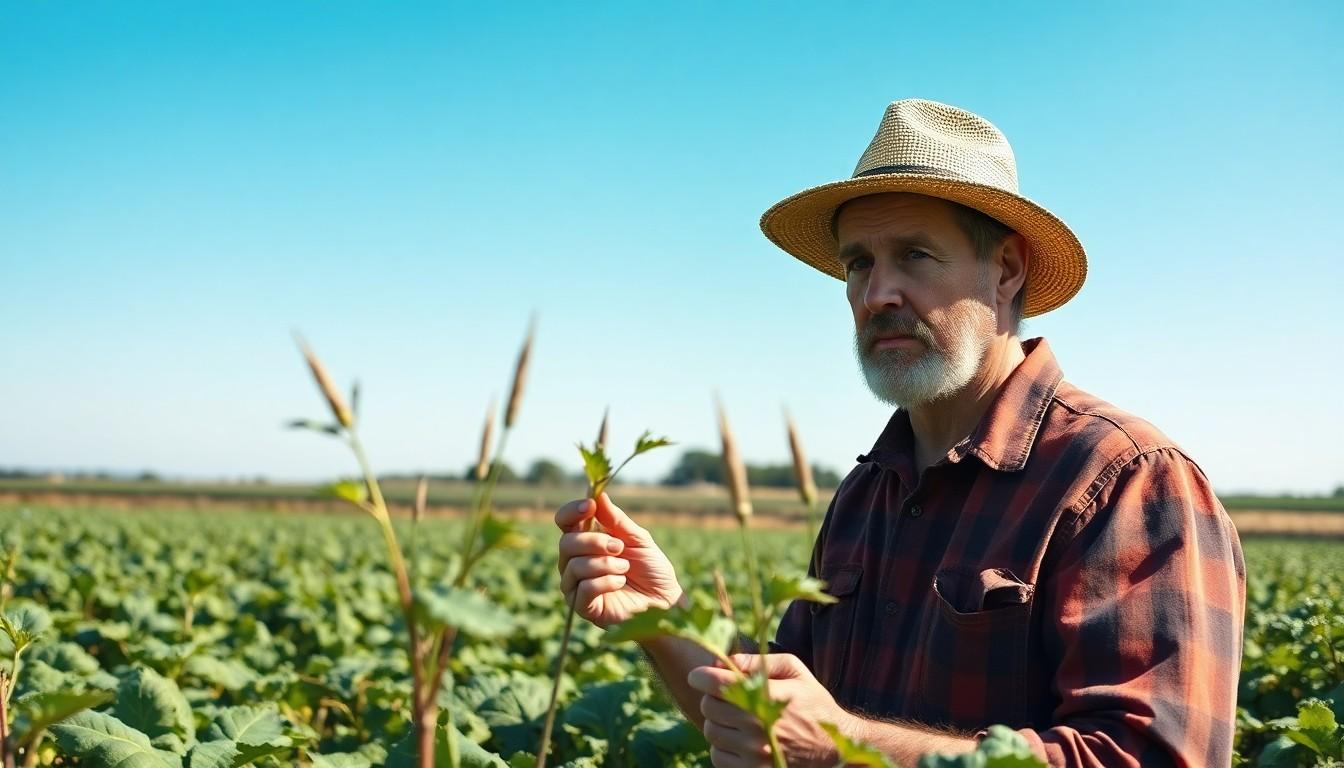The Best Fluffy Pancakes recipe you will fall in love with. Full of tips and tricks to help you make the best pancakes.

Organic farming often gets a gold star for its eco-friendly approach and health benefits, but it’s not all sunshine and rainbows in the fields. Behind the charming images of happy cows and lush gardens lies a reality that can leave some farmers scratching their heads. For every organic carrot that’s grown without pesticides, there’s a farmer wondering why their yields are lower and their bank account is feeling a little too light.
Cons of Organic Farming
Organic farming emphasizes sustainable practices, aiming to produce food without synthetic pesticides, fertilizers, or genetically modified organisms. This method promotes biodiversity, improves soil health, and minimizes environmental impact. Farmers often utilize crop rotations, composting, and organic fertilizers to maintain soil fertility.
Despite its benefits, organic farming presents notable challenges. Yield levels typically fall below those of conventional farming, often leading to increased production costs. Financial constraints can deter farmers from adopting organic practices, resulting in limited profitability. Markets for organic products may also fluctuate, impacting prices and demand.
Labor intensity represents another hurdle in organic farming. Significant time and effort often go into managing organic crops. Farmers must pay close attention to pest and weed management, requiring diverse strategies. Many also face difficulty accessing sufficient labor, which can hinder production efforts.
Regulatory requirements add complexity to organic farming. Meeting certification standards demands rigorous record-keeping and adherence to specific practices, complicating operations. Farmers may encounter delays and costs associated with the certification process, further straining their resources.
Organic farming creates a paradoxical relationship with consumer perception. While many consumers perceive organic products as safer and more nutritious, the realities of organic farming can challenge those beliefs. Understanding these complexities helps clarify the broader implications of choosing organic methods.
Economic Challenges

Economic challenges significantly impact the feasibility of organic farming. Organic farmers face multiple financial hurdles that affect their overall sustainability.
Higher Production Costs
Production costs for organic farming are notably higher than conventional methods. Inputs like organic seeds and natural fertilizers can be more expensive. Labor requirements increase due to intensive practices like manual weeding and pest management. Certification processes demand substantial financial investment and ongoing compliance costs. These factors combine to create a financial barrier that may discourage new entrants into organic farming.
Market Limitations
Market limitations present additional challenges for organic farmers. Demand for organic products fluctuates, affecting pricing stability. Many regions lack adequate infrastructure for distributing organic goods, leading to supply chain inefficiencies. Competition from conventional crops often undercuts organic prices, creating an uneven playing field. Additionally, consumer education about the benefits of organic products remains essential for enhancing market viability.
Environmental Concerns
Organic farming faces several environmental challenges despite its sustainable image. Issues such as land use and biodiversity highlight the complexities involved.
Land Use Issues
Land use poses significant challenges in organic farming. Organic methods often require more land to achieve comparable yields since they experience lower productivity levels than conventional farming. This increased land demand can lead to deforestation and habitat destruction as farmers seek additional arable land. Additionally, converting existing farmland to organic can disrupt local ecosystems and alter existing land use patterns, contributing to environmental degradation. Striking a balance between organic practices and land conservation remains a pivotal concern for maintaining ecological integrity.
Biodiversity Impact
Biodiversity experiences both positive and negative impacts from organic farming. Organic practices often promote crop diversity by using various planting techniques. However, reliance on specific organic crops can lead to monocultures, reducing genetic diversity. Limited genetic variation heightens vulnerability to pests and diseases, which can prompt the use of additional organic pesticides. Furthermore, the displacement of traditional agricultural practices may threaten the habitats of local wildlife. Achieving diverse ecosystems requires careful management and assessment of the long-term effects of organic farming on biodiversity.
Health and Safety Issues
Organic farming raises several health and safety concerns that warrant attention. Understanding these issues is essential for evaluating the overall impact of organic practices on consumers and the environment.
Pesticide Use and Resistance
Organic farms utilize natural pesticides, but some are still harmful. Organic options can lead to increased pesticide resistance in pests over time. This resistance may result in the need for stronger or more frequent applications, negating some benefits of organic farming. Farmers often face challenges managing these resistant pests effectively while maintaining organic certification standards. Additionally, relying solely on natural pesticide methods may not always protect crops from significant infestations that threaten yields.
Food Safety Concerns
Food safety remains a pressing issue within organic farming. Pathogens such as E. coli and Salmonella can contaminate organic produce, often originating from manure used as fertilizer. Higher levels of moisture in organic farming methods can create favorable conditions for these pathogens. This situation poses risks during harvesting and distribution, potentially leading to foodborne illness outbreaks. Testing and monitoring protocols may lag behind those in conventional agriculture due to the lower volumes of produce produced each season. Ensuring food safety in organic farming requires rigorous adherence to safe handling practices and consistent monitoring of potential contamination sources.
Accessibility and Scale
Organic farming faces significant challenges concerning accessibility and scale. Factors such as availability of organic products and limitations of small-scale farms greatly influence this sector.
Availability of Organic Products
Availability of organic products often presents challenges for consumers. Many regions lack access to a consistent supply of organic fruits and vegetables, limiting choice. Market demand can exceed supply, resulting in higher prices for available items. Geographical restrictions affect accessibility, as organic farms often cluster in specific areas, leaving urban centers underserved. Additionally, transportation costs can increase the price of organic goods, making them less affordable for some consumers. Combined, these factors create barriers to consistent access to organic options in many communities.
Small-Scale Farm Limitations
Small-scale farms encounter unique limitations in organic agriculture. First, these farms typically struggle with financial viability due to high production costs and lower economies of scale. Limited land resources can hinder crop diversity and yield, affecting overall sustainability. Labor challenges also arise, as small-scale farms often rely on family members and local workers, which can be insufficient for intensive organic practices. Furthermore, certification processes may pose hurdles for small farms, complicating their ability to meet regulations while managing day-to-day operations. Collectively, these constraints restrict the growth potential of small organic farms in competitive markets.
Demand for Organic Produce
Organic farming presents a compelling vision of sustainable agriculture but isn’t without its drawbacks. The economic challenges can strain farmers as they navigate higher production costs and market fluctuations. Additionally the labor-intensive nature of organic practices can lead to workforce shortages and increased operational complexities.
Environmental concerns also linger as the demand for organic produce can inadvertently drive land use changes that threaten ecosystems. While the health benefits of organic products are often touted consumer perceptions may not always align with the realities of organic farming. Understanding these cons is essential for anyone considering the impact of organic agriculture on both the economy and the environment.
